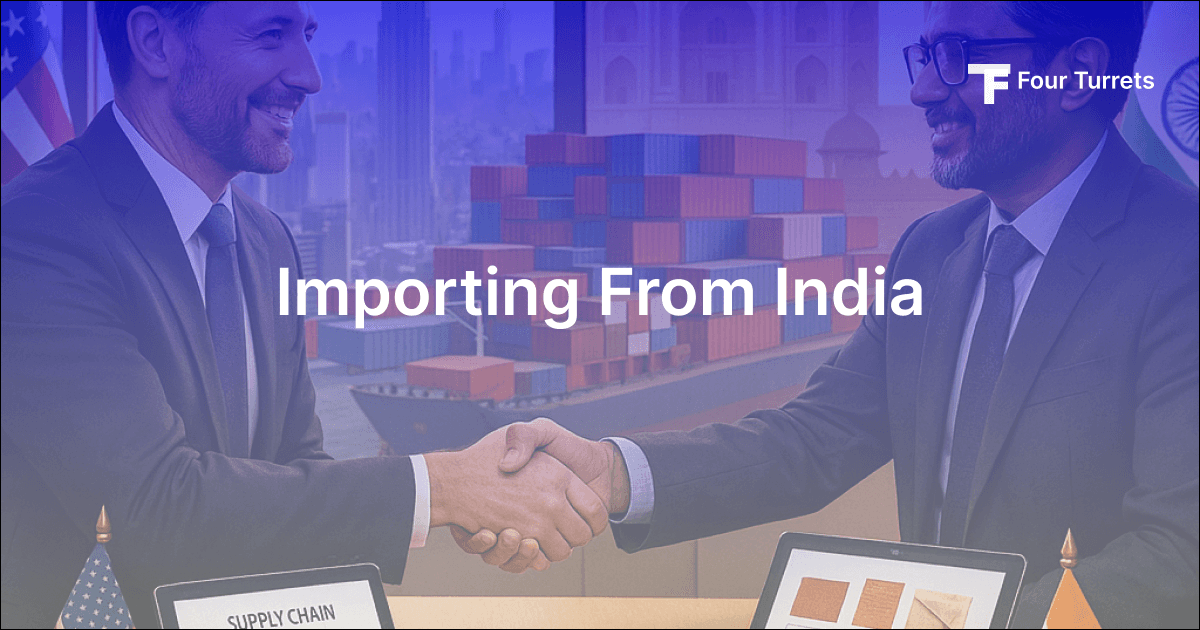Importing goods from India offers US businesses access to a diverse range of products, competitive pricing, and a robust supply chain. However, the process involves several critical steps, from sourcing Indian manufacturers to navigating customs clearance and compliance. There are crucial documentations, invoices and payment options you have to finalize before you work on your imports.
This guide provides a comprehensive overview of the import process, ensuring your shipments from India to the USA are efficient and compliant.
Understanding the Import Process from India
The import process from India to the USA involves several stages:
- Product Selection: Identify the type of goods you wish to import. Certain goods are subject to specific regulations or may require an import license.
- Supplier Verification: Vet Indian manufacturers to ensure product quality and compliance with US standards.
- Negotiation and Contracting: Finalize pricing, payment terms, and delivery schedules.
Sourcing Products and Indian Manufacturers
India is renowned for its wide range of goods, including textiles, agricultural products, handicrafts, and industrial components. When sourcing products:
- Research Reputable Suppliers: Use trade directories, attend trade fairs, or leverage sourcing platforms.
- Request Samples: Evaluate product quality before placing bulk orders.
- Assess Compliance: Ensure suppliers can provide necessary certifications and adhere to US import regulations.
Documentation Required for Importing Goods
Proper documentation is crucial for smooth customs clearance. Key documents include:
- Commercial Invoice: Details the transaction between buyer and seller.
- Bill of Lading: Serves as a receipt and contract for the shipment.
- Packing List: Lists all items in the shipment.
- Certificate of Origin: Specifies the country of origin, which can impact duties and eligibility for trade agreements.
- Import License: Required for certain regulated goods.
Freight and International Shipping Options
Choosing the right freight option depends on your budget, timeline, and cargo type:
- Air Freight: Faster but more expensive; ideal for high-value or time-sensitive goods.
- Sea Freight: Cost-effective for large shipments; longer transit times.
- Incoterms: Clarify responsibilities for shipping, insurance, and customs between buyer and seller.
Customs Clearance and Compliance
Customs clearance is a critical step in the import process:
- Customs Broker: Engaging a licensed customs broker can simplify the clearance process and ensure compliance with US Customs and Border Protection (CBP) regulations.
- Classification: Accurately classify goods using the Harmonized Tariff Schedule (HTS) to determine applicable duties and taxes.
- Anti-Dumping Duties: Be aware of any anti-dumping or countervailing duties that may apply to your goods.
- Customs Regulations: Stay updated on import restrictions, labelling requirements, and safety standards.
Duties, Taxes, and Trade Agreements
- Import Duties and Taxes: Calculated based on the classification, value, and country of origin of the goods.
- Trade Agreements: The US and India do not have a comprehensive free trade agreement, but certain goods may benefit from preferential duty rates under specific programs.
- Payment of Duties: Duties must be paid before goods are released from customs.
Working with a Customs Broker
A customs broker can help you navigate the movement of the goods and documentations. Here are some of the key points they can help you with:
- Guide you by streamlining the clearance process
- Ensure accurate documentation and classification
- Help you navigate complex regulations and avoid costly delays
Conclusion
Importing goods from India can be a lucrative opportunity for US businesses, provided you understand the import process, comply with customs regulations, and maintain clear communication with your suppliers and logistics partners. By following this guide, you can streamline your supply chain, minimize risks, and ensure successful imports from India.
Ready to start sourcing and importing from India?
Contact our team at Four Turrets for personalized consulting and supply chain solutions tailored to your business needs.







